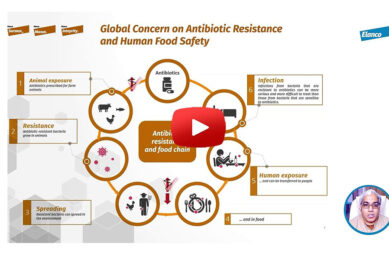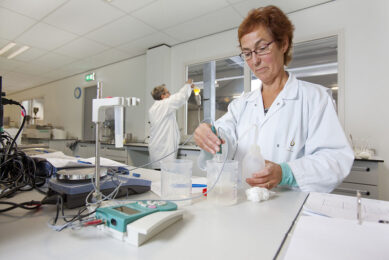Science & innovation for a sustainable food chain
Representatives from the European Food Safety Authority (EFSA) and other EU bodies met to discuss answers to questions relating to efforts aimed at a sustainable food chain.
How to provide safe and healthy food for a global population that is expected to reach 9 bln by 2050? How to ensure that agricultural and food production systems are sustainable in the long-term? How to best promote innovation along the entire food chain?
“Europe has a thriving food industry backed by centuries of tradition and know-how. Innovation can bring major benefits for both the consumer and the environment, and it is important to assess the risks and benefits of new technologies,” said Catherine Geslain-Lanéelle, EFSA’s Executive Director. “For EFSA, that can mean new applications to assess efficacy, and the need to either develop new risk assessment methodologies or refine existing ones. It can be challenging insofar as data in areas of new science such as nanotechnology or GMOs can be limited and there may be significant areas of scientific uncertainty to address and communicate; but we are committed to meeting those challenges and to ensuring that European legislation is grounded in the best science,” she added.
EU Commissioner for Health and Consumer Policy, John Dalli: “I am a strong supporter of innovation and I am fully committed to maximising the advantages science can offer – but not at any cost. Innovation needs to be in tune with the broader values of society, to be of clear and visible benefits to consumers, and last but not least it must be accompanied by effective communication. When it comes to the food industry, safety is the essential precursor on which the food industry is built. A constructive, coherent and transparent engagement with all stakeholders is absolutely the paramount.” He added that he will pursue a policy of “responsible innovation” in all relevant areas, and that he wants to see the European food industry at the cutting edge of progress and development whilst boosting consumer confidence.
Italian Minister for Health, Ferruccio Fazio: “Italy intends to participate actively in this process of innovation aimed at ensuring sustainable food production while providing a wide range of products for the consumer. To this end, I intend to present the Italian model as a point of reference for safety in food production which will mark its development through Expo Milano 2015. The creation of the ‘Quality and Food Safety High School’, already provided for in the protocol signed with EFSA’s Executive Director in the presence of Commissioner Dalli in Parma on 12th of March 2010, is a concrete contribution to this project.”
The conference was organised by EFSA, the European Commission’s Directorate-General for Health and Consumers, under the auspices of the Presidency of the Italian Council of Ministers (Presidenza del Consiglio dei Ministri).
More information on the conference: “Can science and innovation build a more sustainable food chain?”













